Rajasthan Farmer Grows 60000 Trees in a Drought-Prone Village Using Just 1 Litre of Water Each
In the arid heart of Rajasthan, where the soil is sandy and the rains are brief, Sundaram Verma bends to check a sapling growing tall beside his field. He presses the earth gently near its base, satisfied. This tree, like over 60,000 others he has planted, has never tasted more than a litre of water in its life.
Back in 1950, when Sundaram was born in Daanta village of Sikar district, India was newly independent and water scarcity was already an everyday reality in Rajasthan. Decades later, his home remains as dry and unforgiving as ever — but Sundaram’s fields tell a different story.
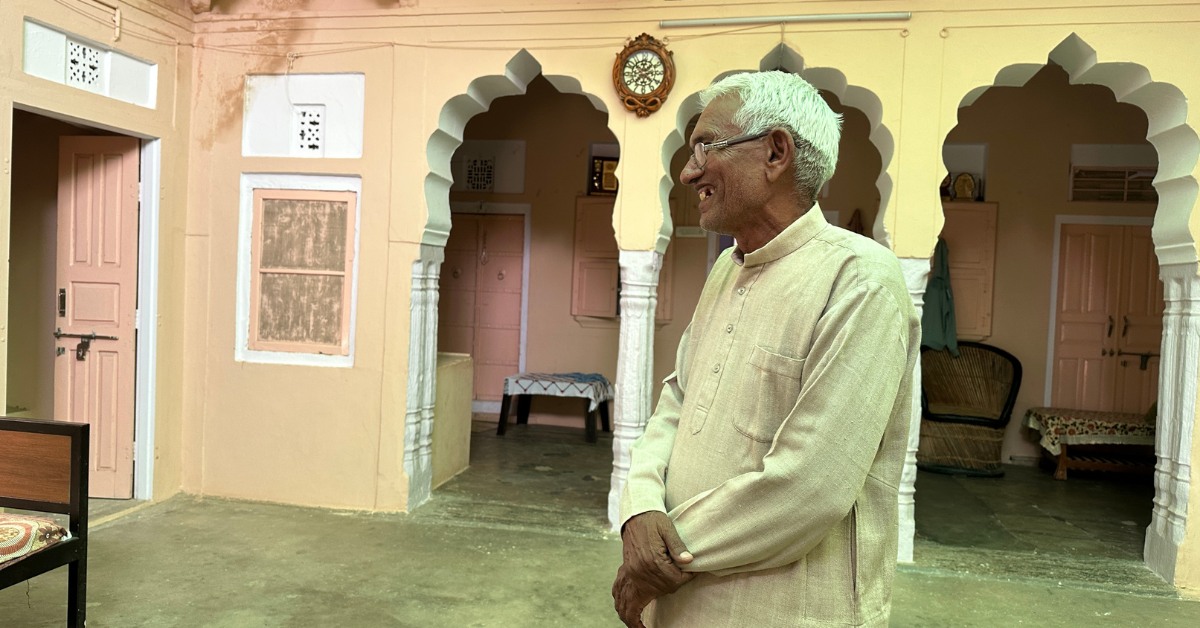 Sundaram Verma has grown over 60,000 trees in Rajasthan using just one litre of water per plant — a method he developed himself.
Sundaram Verma has grown over 60,000 trees in Rajasthan using just one litre of water per plant — a method he developed himself.
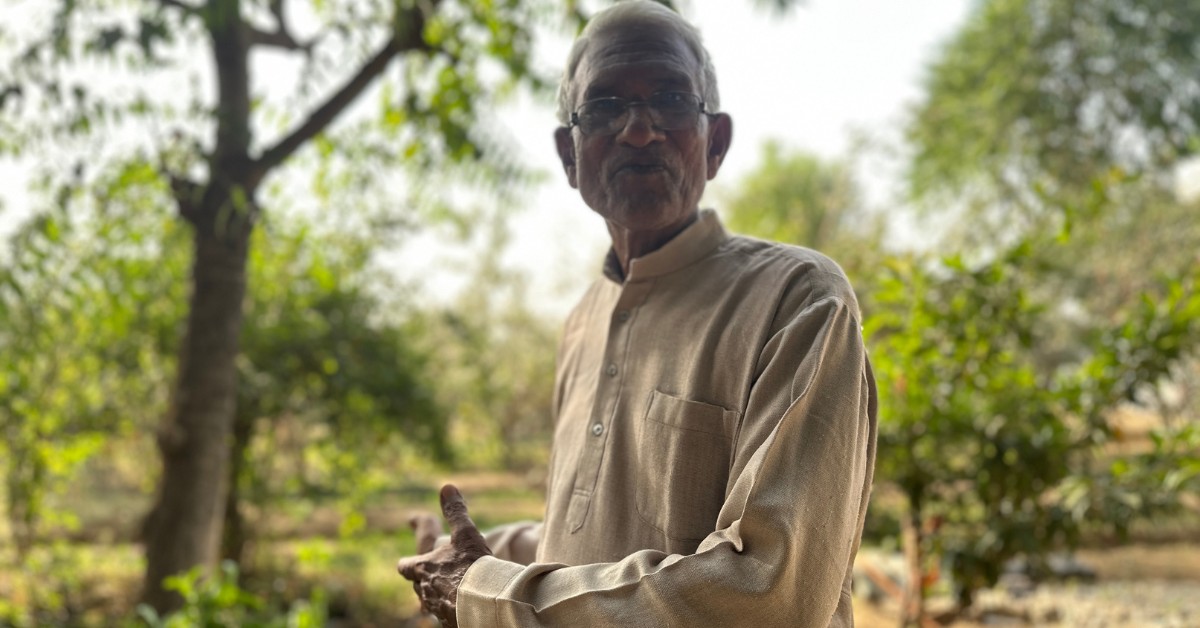 Sundaram develops improved native seeds that can survive drought and boost income for small farmers.
Sundaram develops improved native seeds that can survive drought and boost income for small farmers.
Against all odds, he has pioneered a farming method that uses the earth’s natural moisture to grow trees with minimal water. Today, this Padma Shri awardee stands not just as a farmer, but as a force of innovation and hope — teaching others that environmental change can begin with just a single litre and a lot of heart.
Farming with nature, not against it
The technique is as straightforward as it is powerful. “We wait for the first monsoon showers and then plough the soil about 20 centimetres deep,” Sundaram explains. “This helps the soil absorb more water and clears away weeds that take up too much moisture.”
As the rains continue, the moisture gets locked in. Just before the monsoon ends—around late August or early September — he ploughs again, this time deeper, creating a natural moisture reservoir beneath the surface.
“When we plant saplings with roots reaching about 25 centimetres deep, they tap into that hidden moisture and grow strong — without needing extra watering,” he says with pride.
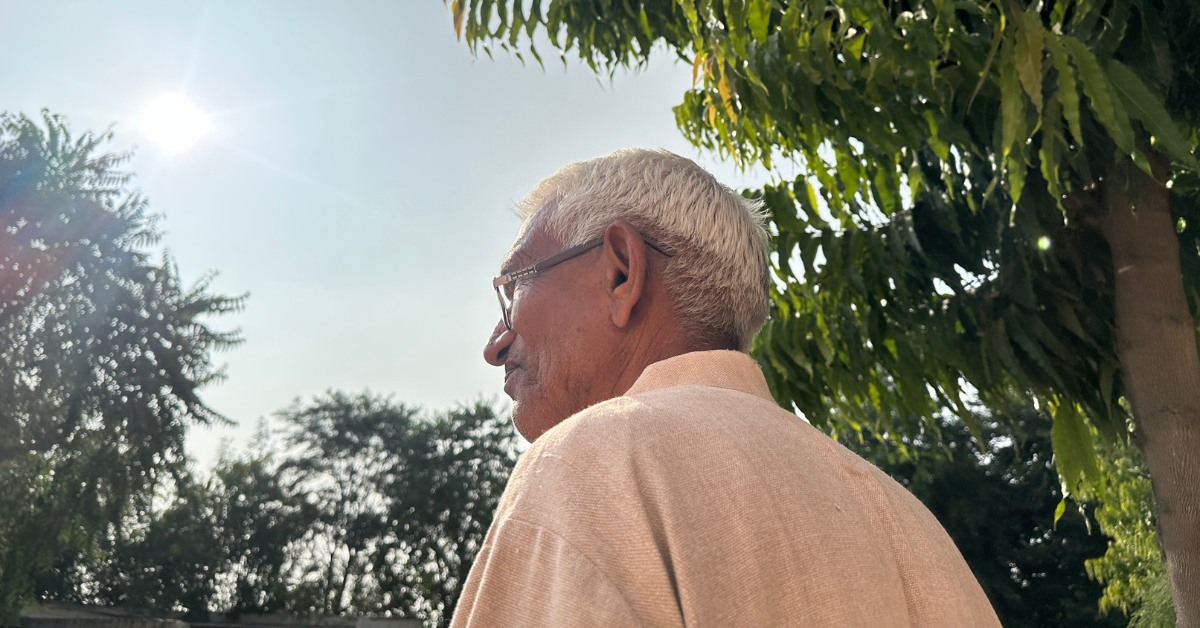 His one-litre water method relies on deep ploughing during the monsoon to trap soil moisture for months without irrigation.
His one-litre water method relies on deep ploughing during the monsoon to trap soil moisture for months without irrigation.
Over time, this one-litre-per-plant method has gained attention across India, especially among farmers grappling with declining groundwater and erratic rainfall. What began as a local innovation has grown into a quiet movement of sustainable farming.
Today, Sundaram’s method has helped grow more than 60,000 trees and saved over 9 lakh litres of water. The impact is both visible and lasting. In 2019, he was conferred the Padma Shri, one of the country’s highest civilian honours, recognising his lifelong contribution to water conservation and low-resource agriculture.
A childhood between soil and books
Sundaram’s connection to the land runs deep — woven into the fabric of his childhood.
“When I took admission in Class One, I would go straight to the farm after school. That was just how life was back then,” he recalls. “My father Ishwarlaal, my uncle Gangaram, and my grandfather Lakshminarayan Verma — all of them worked tirelessly in the fields. Farming was our life, our identity.”
But something shifted when Sundaram’s younger uncle, Tulsiram, was chosen to study instead of work. He became the first in the family to receive formal education. In 1957, he passed Class 10 and was appointed as a teacher.
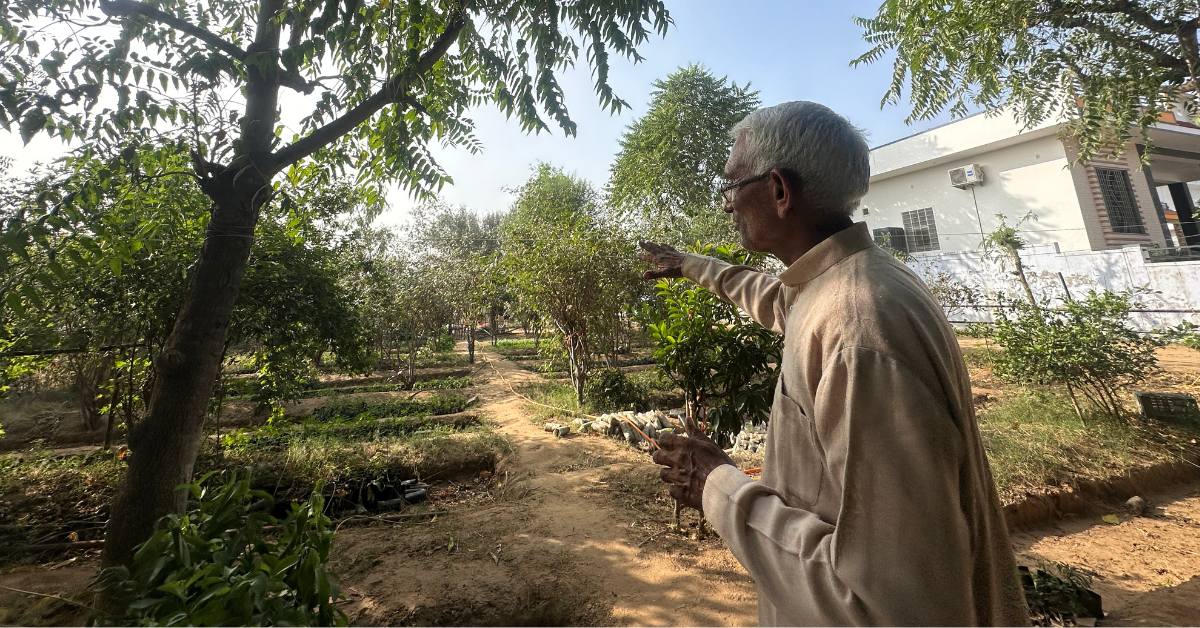 Sundaram’s work is a family effort — rooted in shared values, seed preservation, and hands-on participation in the fields.
Sundaram’s work is a family effort — rooted in shared values, seed preservation, and hands-on participation in the fields.
“That was a turning point for our entire family. For the first time, we saw education not as a luxury, but as a powerful tool that could change lives.”
The moment left a deep imprint on young Sundaram.
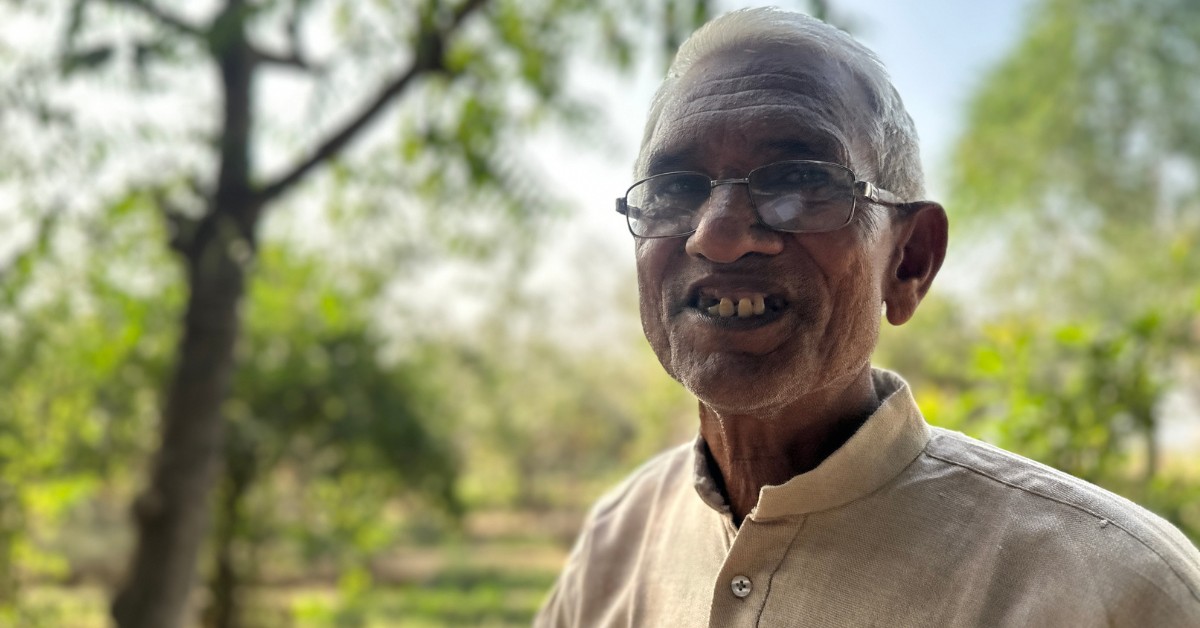 Sundaram has preserved over 700 seed varieties from 15 major crops native to Rajasthan’s dry zones.
Sundaram has preserved over 700 seed varieties from 15 major crops native to Rajasthan’s dry zones.
“Seeing my uncle succeed made a lasting impression on me. From that moment on, I was determined to study, to learn, and to do something meaningful. That early exposure to both hard work on the farm and the value of education shaped everything I’ve done since.”
It was this blend of lived experience and curiosity that laid the foundation for his lifelong pursuit of innovation in farming — grounded in knowledge, driven by purpose.
A family rooted in purpose
Today, Sundaram Verma spends most of his time on the farm — mentoring visiting scholars, experimenting with sustainable methods, and working alongside his family, who draw strength and inspiration from his dedication.
“I’m currently focused on cultivating millets, mustard, and cotton with minimal water,” he shares. “With the long-term effects of climate change already visible, it’s crucial that we prepare ourselves for a future where water conservation is not just wise, but necessary.”
His wife, Bhagwati Devi (73), stands beside him in every sense. “She’s remarkable,” he says with affection. “She’s developed two techniques for termite control that have won national awards. Whether it’s managing the household or working in the fields, she does it all with incredible energy.”
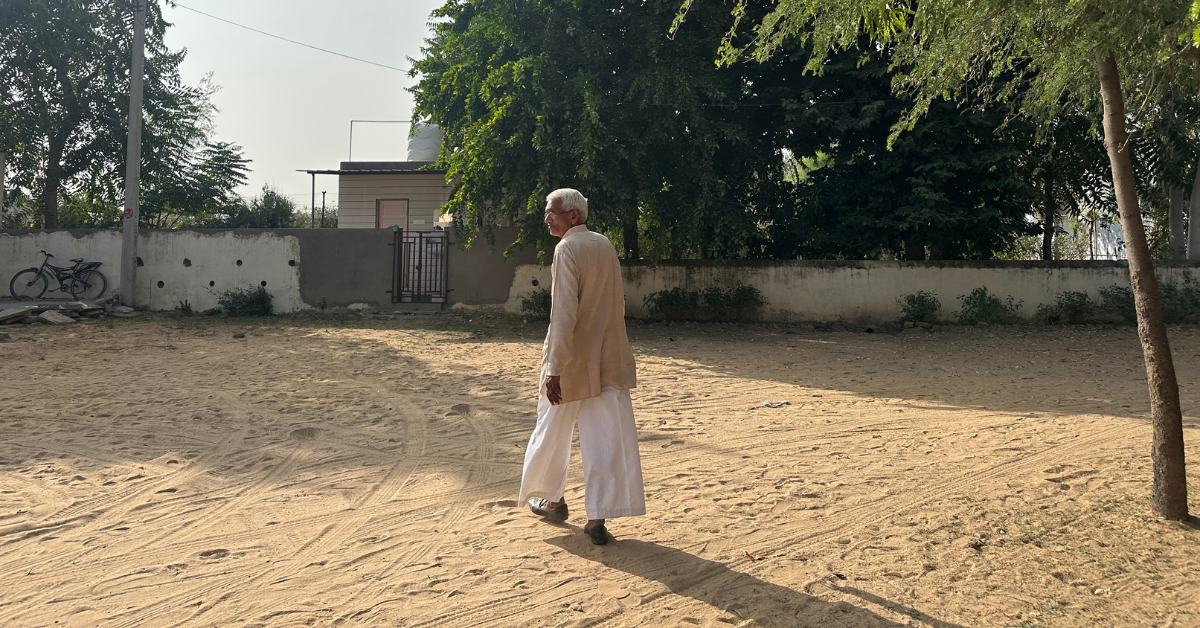 In 2020, Mahatma Jyoti Rao Phule University awarded Sundaram a PhD for his field contributions to sustainable farming.
In 2020, Mahatma Jyoti Rao Phule University awarded Sundaram a PhD for his field contributions to sustainable farming.
The Verma family runs on shared effort and shared purpose. Their two sons and daughters-in-law work full-time on the farm, while their five daughters are married and settled. Sundaram speaks with pride when he mentions his daughters-in-law: “They help label, monitor, and manage my seed experiments with care and precision. Their support means everything.”
Over the years, Sundaram has built a collection of over 700 seed varieties across 15 major crops—both kharif and rabi—native to Rajasthan. His work is not just about farming. It is about preserving biodiversity and passing forward a way of life that respects nature.
On 7 March 2020, Mahatma Jyoti Rao Phule University awarded him a PhD in recognition of his contributions — formally honouring what years of fieldwork had already proved.
The farmer who gave others a way forward
Sundaram’s impact reaches far beyond his own fields. Farmers, researchers, and students from across India come to learn from him — not only for his technique, but for the belief he instils.
“Before I met Sundaram ji, I thought farming in a dry region like ours meant constant struggle and failure,” says Ramesh Meena, a young farmer from Jhunjhunu. “But after training with him, I planted over 200 trees using his one-litre water method — and they’re thriving. He didn’t just teach me a technique; he gave me hope that we can farm with nature, not against it.”
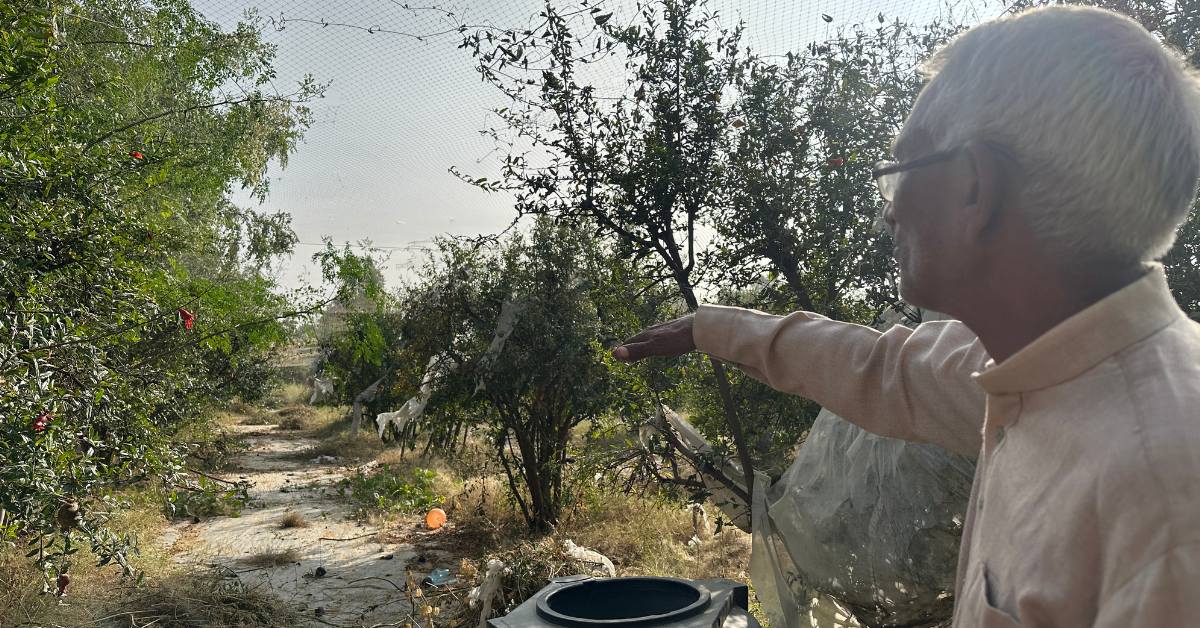 Ramesh Meena from Jhunjhunu adopted Sundaram’s method and grew 200+ trees in a dry region — without extra water.
Ramesh Meena from Jhunjhunu adopted Sundaram’s method and grew 200+ trees in a dry region — without extra water.
His elder daughter-in-law, Suman Verma, echoes this sentiment. “He’s not just planting trees — he’s planting ideas, values, and purpose in all of us. Watching him work with such dedication inspires our whole family. We’re not just helping on the farm — we’re part of something bigger: preserving our land and future generations.”
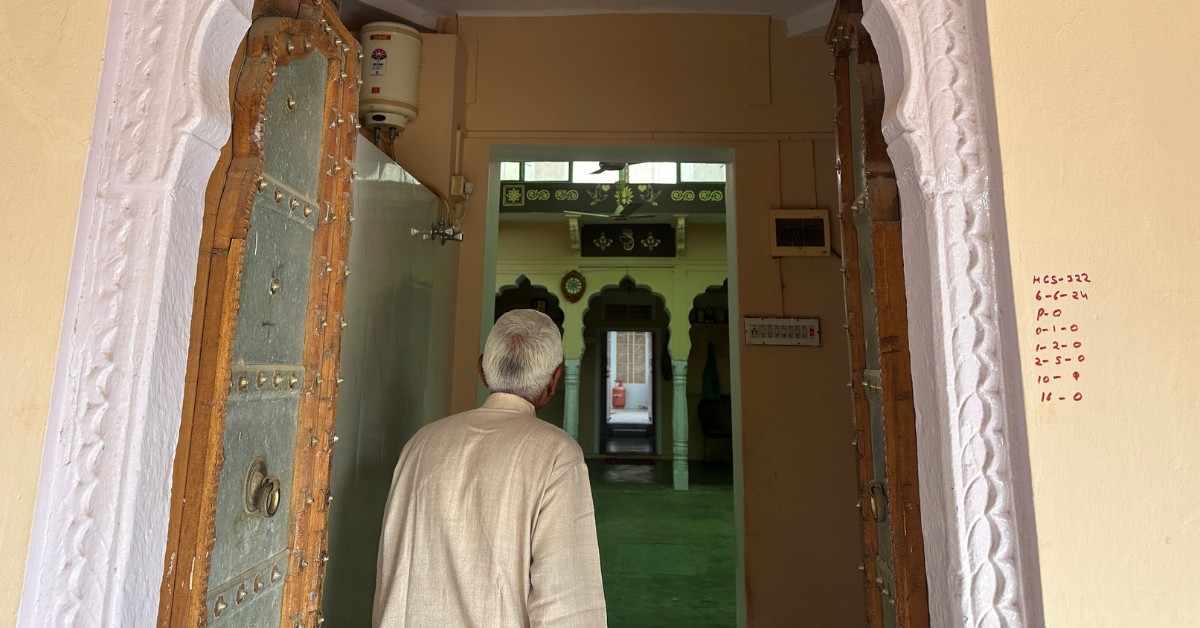 Sundaram’s daughter-in-law Suman says the family sees his work as more than farming — it’s about values and purpose.
Sundaram’s daughter-in-law Suman says the family sees his work as more than farming — it’s about values and purpose.
Since 2020, Sundaram has expanded his outreach — training farmers across Rajasthan and other states in what he calls the “1 Rupee per Litre Water” technique. His goal is to transform drought-prone areas into self-sustaining, green landscapes.
“I’ve been trying to support people by educating them about innovative rainwater harvesting methods and helping them increase their income,” he tells The Better India.
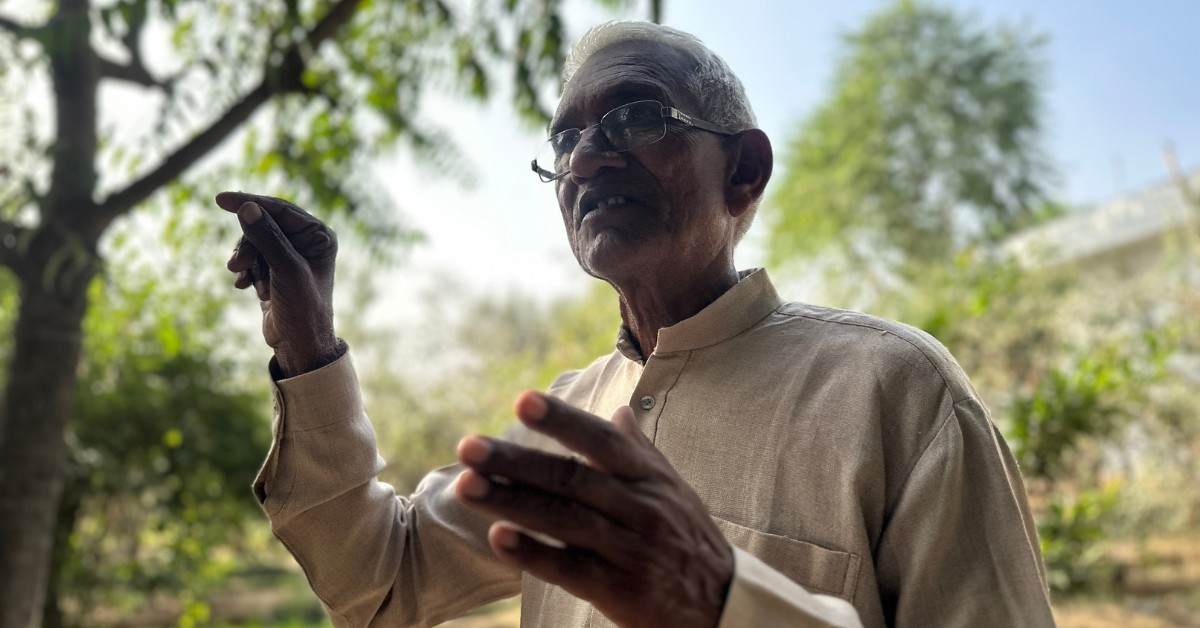 Since 2020, Sundaram has trained farmers across states in the “1 Rupee per Litre Water” method to fight drought.
Since 2020, Sundaram has trained farmers across states in the “1 Rupee per Litre Water” method to fight drought.
A passionate advocate of organic farming, Sundaram encourages farmers to move towards native crop varieties. In alignment with government efforts to revive indigenous agriculture, he is now developing high-yield, climate-resilient native seeds to distribute freely among farming communities.
“As part of this effort,” he explains, “I focus on preparing improved native varieties that are both resilient and profitable for farmers.”
Sundaram is also a long-standing member of the Honey Bee Network, contributing to the documentation and sharing of grassroots farming innovations. “I continuously compile and share these insights with NIF India,” he says, “ensuring that valuable knowledge reaches a wider audience.”
A life built on water, wisdom, and work
In a world facing shrinking water tables, erratic monsoons, and growing uncertainty, Sundaram Verma offers more than a method—he offers perspective.
His life’s work is rooted in patience, care, and a deep respect for the land. Through each sapling he nurtures and each farmer he mentors, he’s quietly building something lasting.
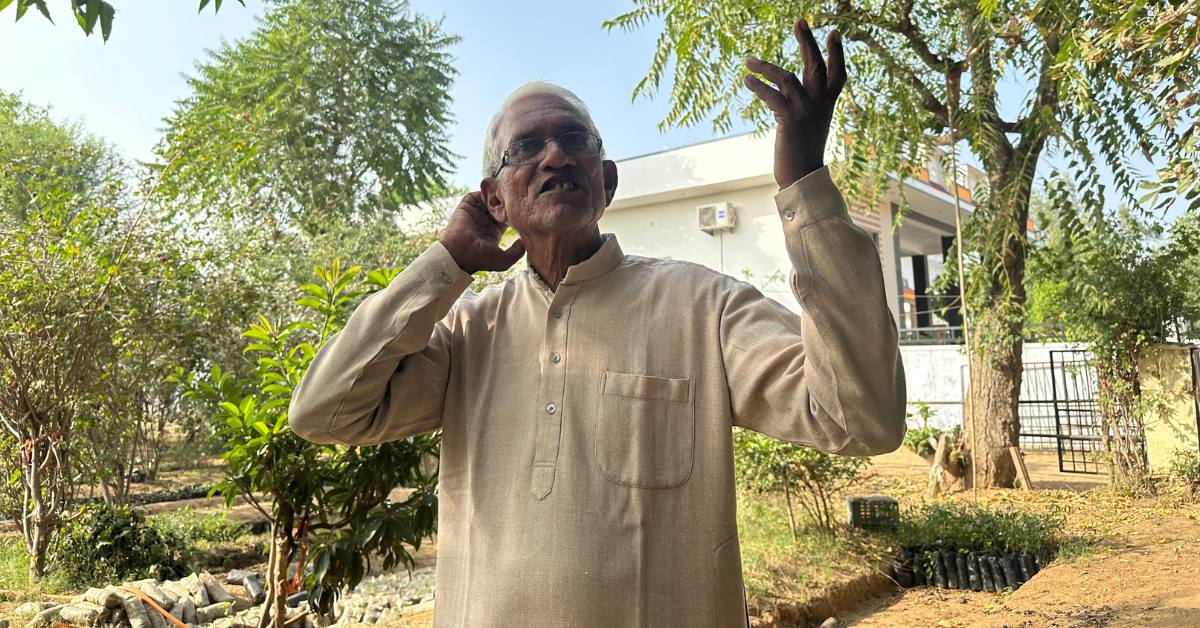 Sundaram doesn’t call it a movement. He just keeps doing what he knows — planting trees, helping farmers, and using water like it matters.
Sundaram doesn’t call it a movement. He just keeps doing what he knows — planting trees, helping farmers, and using water like it matters.
It isn’t just the trees, or the water saved, or even the awards that define him. It’s the way he brings his community along — family, neighbours, students, and strangers alike — helping them see that solutions need not be complex. They need to be grounded, shared, and sustained.
As the weather gets more unpredictable and water becomes harder to find, Sundaram doesn’t talk about big solutions. He just shows what’s possible. That even one litre of water, if used with care, can grow something strong. That you don’t need much to make a difference — just patience, a bit of knowledge, and the will to keep going, even when it’s tough. He’s not trying to lead a movement. He’s just doing the work. And that, in itself, is enough to move people.
All pictures courtesy Jigyasa Mishra
News